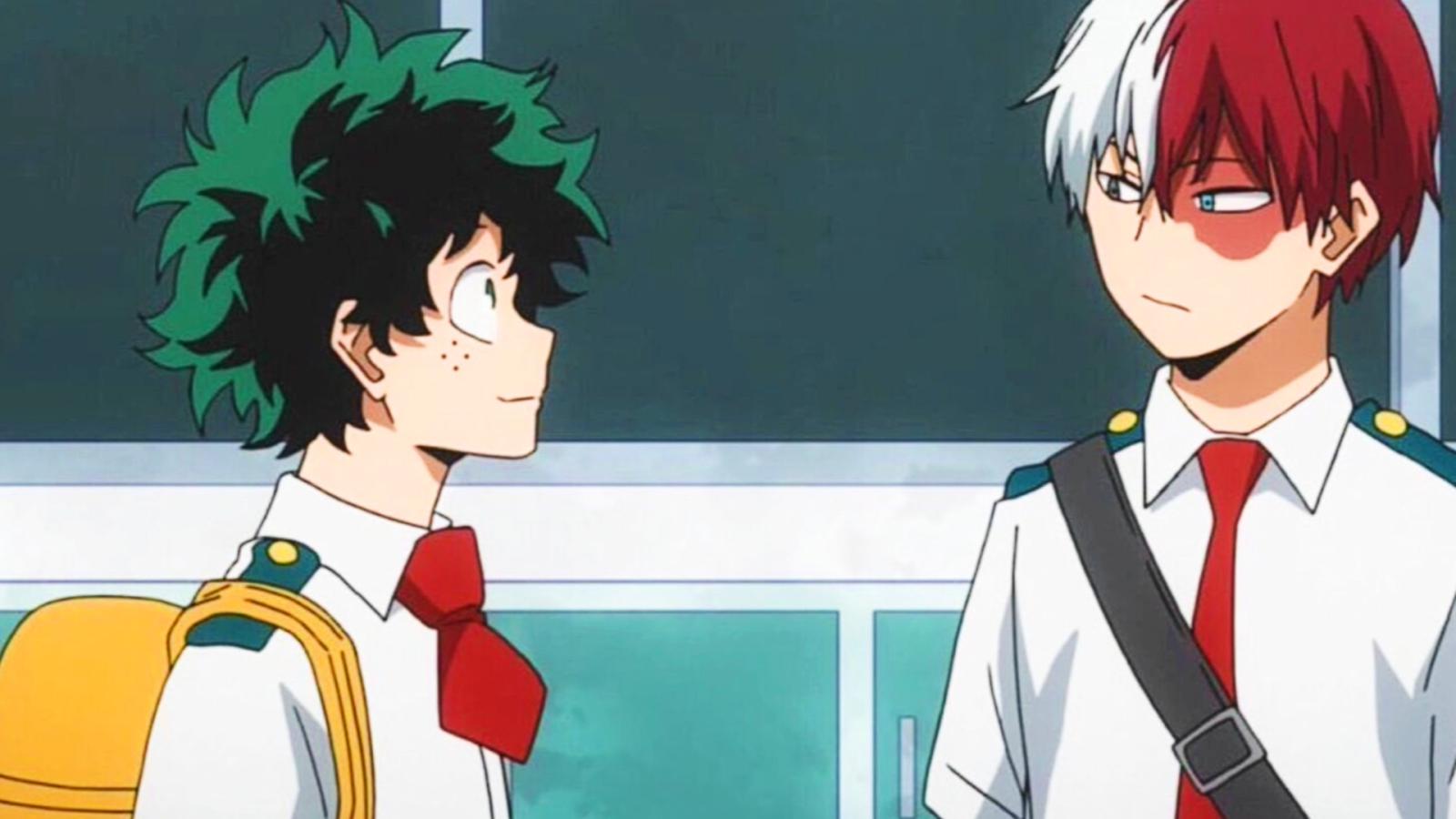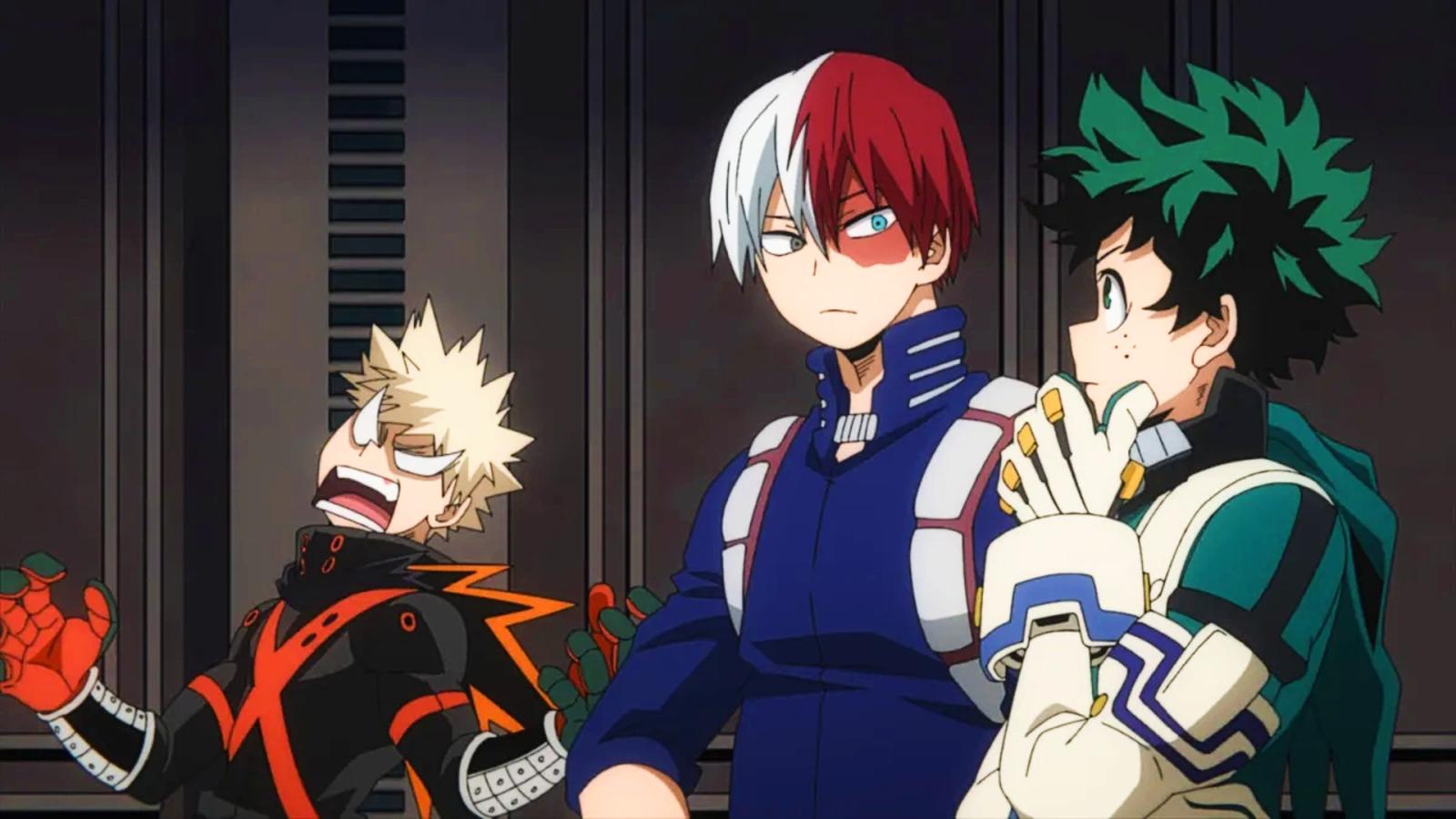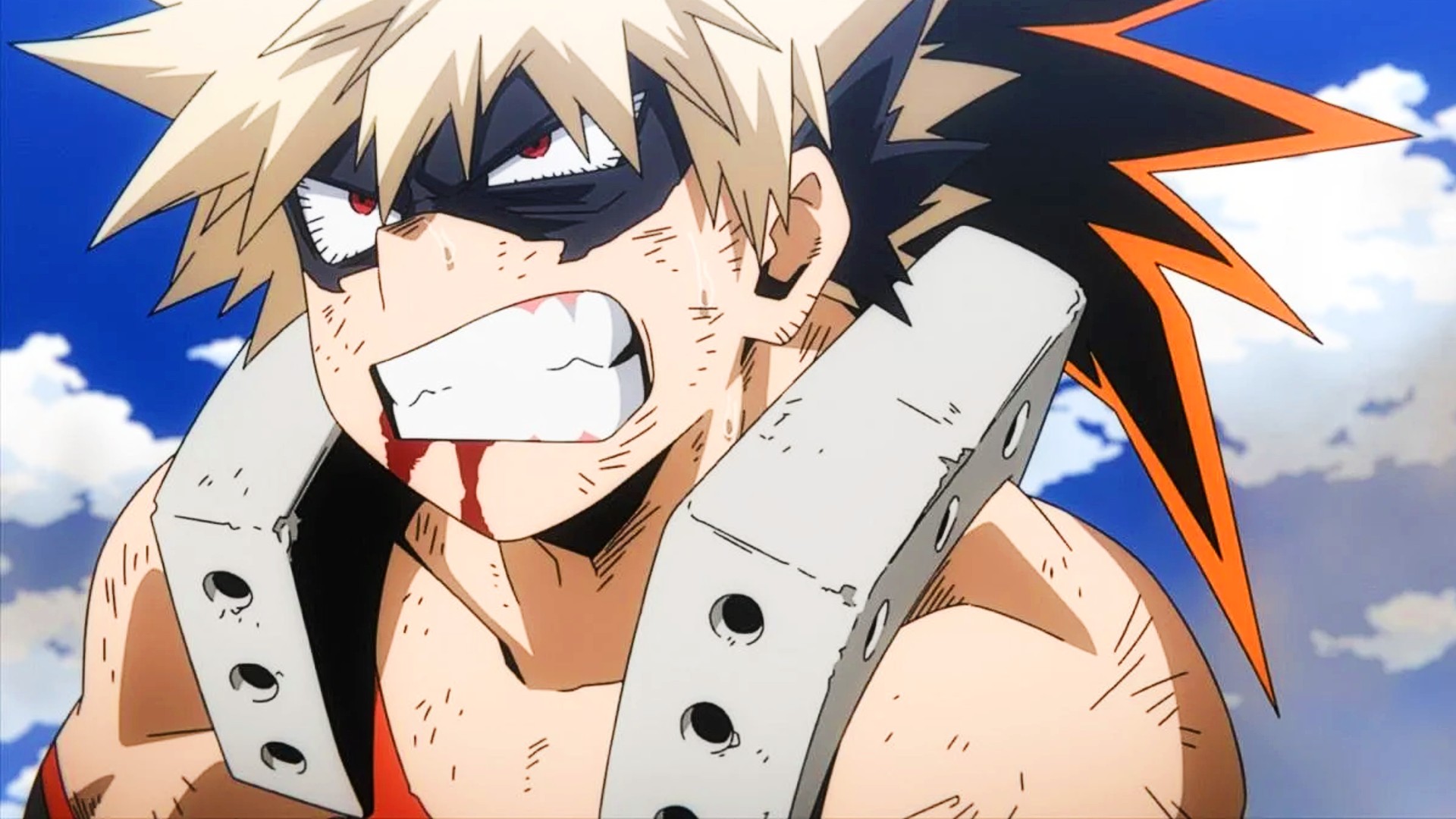A comparison to other shonen anime reveals some serious problems.
My Hero Academia does a lot of things right: it has charming and relatable characters, impressive fights, nice-looking visuals and a general nice warm feeling to it. However, it does arguably suffer from one very big issue — and it's the pacing.
Arguments about anime pacing are a rather common thing with some people always claiming that X show's plot develops too slowly, while others naturally come to its defense, stating that it simply takes its time and allows the characters to properly develop. My Hero Academia too is the usual suspect when it comes to these kinds of discussions — let's examine how true the accusations that are being thrown against it are.
For starters we need some kind of reference point that we can compare MHA to — so how about Bleach. It's a similarly themed shonen anime that largely operates within the same core ideas and principles — and that would make the comparison fair. With this out of the way it's time to ask the main question: what do Bleach and My Hero Academy manage to accomplish within the same timeframe.
By the time its first 100 episodes were aired Bleach had managed to tell its audience quite a bit.
Episode 1 kicked off with Ichigo being nothing but an ordinary student, spending his free time sitting at home and only dreaming about any kind of adventure. 99 episodes later he is a sword-wielding badass who explores the depth of hell, duels monsters and has an almost-perfected signature move. On top of that, within the same 100 episodes, there is also a full-fledged 20 episode long filler arc. Which, while not being a source of joy for the audience per se, does just show how quick the story develops.

My Hero Academia, on the other hand, kind of takes its time, to put it mildly.
At the beginning of the show Deku, in a similar fashion to Ichigo, is an unimpressive high school weakling who is bullied by his schoolmates and hardly has anything going for him. And 100 episodes later he is… Still a highschooler, but a bit powered up and less frequently bullied. The overall story is pretty much in the same place as it's been half a hundred episodes back.
Any kind of story development is largely inexistent.
On a surface this might seem like a fabricated argument but if we actually take the time to examine what a typical episode of My Hero Academia looks like we might see where these issues originate from. The show is plagued with an embarrassing amount of flashbacks, overexplanatory dialogue and lengthy inner monologues.
Without these tools by its side, the show struggles to not only to tell any remotely compelling or at the very least coherent story, but even to introduce any new character. Every little thing that happens has to be over-explained by the characters and then monologued upon by the protagonist. With all of this consuming the lion's share of any given episode's runtime — it's only natural that the story simply can't get anywhere.

Despite being an anime — a primarily visual medium — My Hero Academia does not rely on visual storytelling and thus, as some fans like to say, is relegated to a status of a 'glorified audiobook'. This in turn leads not only to the pacing issues mentioned above but to something even more dire — important story moments falling totally flat or epic confrontations looking ridiculous because nobody seems to be able to just shut up and act.
For many fans, this kind of approach towards storytelling is flat out disrespectful as the creators obviously do not consider their audience to be capable of remembering, noticing or figuring out even the most basic of things without being told to do so by the narration.
Ultimately, My Hero Academia is an incredibly successful franchise, which, in the eyes of many, proves its worth and erases any possible questions or doubts regarding its quality. But not everybody thinks so and — as we have just observed when comparing MHA to Bleach — at least some of the criticism directed at the show in regards to its pacing might indeed be true.

